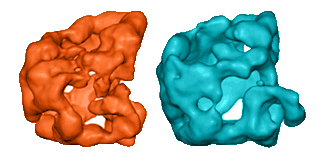The 26S proteasome plays an important role in the generation of peptides suitable for binding to MHC class I molecules, while MHC class II molecules are loaded with antigens in the endocytic compartment, often after lysosomal degradation by the autophagy pathway. Our working hypothesis is that regulated rerouting of proteasomal substrates to selective autophagy may define a new pathway to down regulate MHC class I presentation in most cells, and in turn enhance MHC class II presentation in antigen presenting cells.



